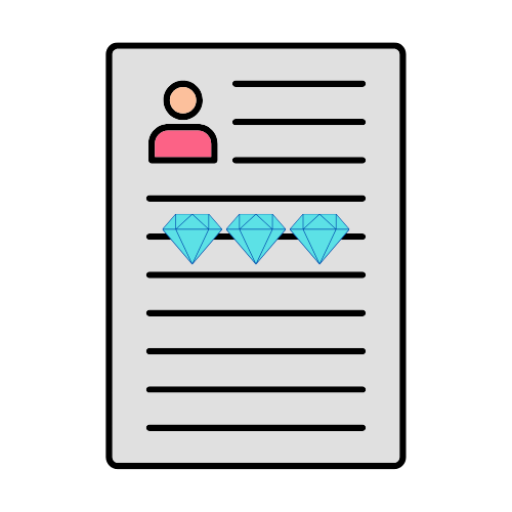Genetic Counselors are specialized healthcare professionals who play a crucial role in helping individuals and families understand and navigate genetic health issues. Their responsibilities include evaluating family health histories, explaining genetic test outcomes, and guiding patients through the complexities of inherited conditions. These experts provide invaluable support by educating clients about available testing methods, assisting in decision-making processes, and offering emotional backing throughout genetic evaluations and diagnoses. When interviewing for such positions, applicants should be ready to showcase their deep knowledge of genetics, demonstrate strong counseling abilities, and prove their capacity to effectively convey intricate medical concepts to both patients and fellow healthcare professionals.
A crucial step in landing your dream job as a Genetic Counselor is excelling in the interview process. To help you prepare, we’ve compiled a list of 10 essential interview questions for Genetic Counselor positions. These questions, along with sample answers to the most critical ones, will give you a solid foundation for your upcoming interview.
Interview Questions for a Genetic Counselor
- How do you explain complex genetic information to patients in a way they can understand?
- Describe a challenging case you’ve encountered and how you handled it.
- What strategies do you use to stay up-to-date on the latest developments in genetic counseling?
- How do you handle difficult conversations with patients, especially when delivering sensitive results?
- What do you know about the ethical and legal issues related to genetic counseling?
- Can you provide an example of how you’ve balanced multiple tasks and managed your time efficiently?
- How do you ensure patient confidentiality and maintain accurate records?
- What experience do you have in genetic counseling, and what drew you to this profession?
- How do you collaborate with other healthcare professionals in patient care?
- What do you consider to be your strengths and weaknesses as a genetic counselor?
Sample Answers for the Top 4 Interview Questions
How do you explain complex genetic information to patients in a way they can understand?
What they’re looking for:
Interviewers ask this question to assess your communication skills and ability to translate complex scientific concepts into layman’s terms. They want to ensure you can effectively convey genetic information to patients with varying levels of understanding, as this is a crucial aspect of a Genetic Counselor’s role.
Sample response:
In my previous role at a prenatal genetic counseling clinic, I encountered a patient who was struggling to understand the implications of her carrier screening results. I used a combination of visual aids, analogies, and simple language to break down the complex genetic concepts. For instance, I compared genes to recipe books and mutations to typos in the recipes. This approach helped the patient grasp the information, leading to her making an informed decision about further testing. As a result, the patient expressed gratitude for my clear explanation, and my supervisor commended my communication skills.
Tips for Tailoring Your Response:
When crafting your answer, focus on a specific example from your experience that demonstrates your ability to simplify complex information. Highlight the techniques you used and the positive outcome of your explanation. If you’re new to the field, consider how you’ve explained other complex topics and apply those strategies to genetic counseling scenarios.
Describe a challenging case you’ve encountered and how you handled it.
What they’re looking for:
Interviewers ask this question to assess your problem-solving skills, emotional intelligence, and ability to handle complex situations. They want to understand how you approach difficult cases, manage patient emotions, and maintain professional ethics while providing effective counseling.
Sample response:
I once counseled a couple who received conflicting results from different genetic tests regarding their unborn child’s risk for a rare genetic disorder. The situation was tense as the couple was considering termination based on initial results. I thoroughly reviewed all test reports, consulted with lab specialists, and arranged a multidisciplinary team meeting to discuss the discrepancies. I then carefully explained the situation to the couple, ensuring they understood the complexities and uncertainties involved. By providing clear information, emotional support, and additional resources, I helped the couple make an informed decision about their pregnancy. This case highlighted the importance of patience, thorough investigation, and clear communication in genetic counseling.
Tips for Tailoring Your Response:
When answering, choose a case that genuinely challenged you and showcases your skills in problem-solving and patient care. Focus on the actions you took and the positive outcome you achieved. If you’re new to the field, you can discuss a challenging scenario from your training or internship, emphasizing how you would approach it based on your education and understanding of best practices.
What strategies do you use to stay up-to-date on the latest developments in genetic counseling?
What they’re looking for:
Interviewers ask this question to assess your commitment to professional development and your ability to provide the most current, evidence-based care to patients. They want to ensure you’re proactive in keeping your knowledge up-to-date in a rapidly evolving field and that you can apply new information to your practice.
Sample response:
To stay current, I employ a multi-faceted approach. I regularly attend conferences and webinars organized by the National Society of Genetic Counselors, which provide insights into the latest research and clinical practices. Additionally, I’ve set up alerts for key genetic counseling journals and dedicate time each week to review new publications. For instance, when a groundbreaking study on BRCA1/2 variants was published last year, I immediately incorporated this information into my counseling sessions with breast cancer patients. This proactive approach has allowed me to provide more accurate risk assessments and treatment options to my patients, resulting in better-informed decision-making and improved patient outcomes.
Tips for Tailoring Your Response:
When answering, highlight specific methods you use to stay informed and provide a concrete example of how you’ve applied new knowledge in your practice. If you’re new to the field, discuss strategies you used during your studies and how you plan to continue learning in your professional role. Emphasize your enthusiasm for lifelong learning and your commitment to providing the best possible care to patients.
How do you handle difficult conversations with patients, especially when delivering sensitive results?
What they’re looking for:
Interviewers ask this question to assess your communication skills, empathy, and ability to handle emotionally charged situations. They want to ensure you can deliver sensitive information compassionately while maintaining professionalism and providing appropriate support to patients.
Sample response:
In my previous role at a prenatal genetic counseling clinic, I had to inform a couple that their unborn child had a high risk of a severe genetic disorder. I prepared for the conversation by reviewing all test results thoroughly and arranging a private, comfortable setting. During the meeting, I used clear, simple language to explain the situation, paused frequently to allow for questions, and employed active listening techniques to address their concerns. I acknowledged their emotions, offered support resources, and outlined next steps for further testing and decision-making. As a result, despite the difficult news, the couple expressed gratitude for my approach and felt well-equipped to make informed choices about their pregnancy.
Tips for Tailoring Your Response:
When crafting your answer, focus on a specific example that demonstrates your ability to handle sensitive conversations with empathy and professionalism. Highlight the communication techniques you used and the positive outcome of your approach. If you’re new to the field, you can discuss how you’ve handled difficult conversations in other contexts and how you would apply those skills to genetic counseling scenarios.




